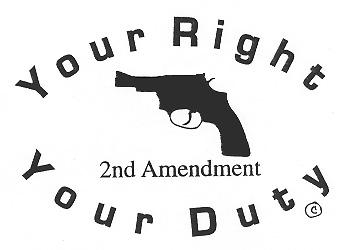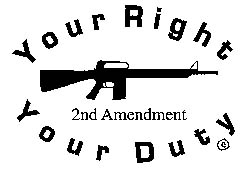|
Source: Law.com
No Civil Rights
Suits Against IRS Agents

Shannon P. Duffy
The Legal Intelligencer
June 2, 2000

The 3rd U.S. Circuit Court of Appeals has ruled that IRS agents cannot
be hit with civil rights suits -- so-called Bivens actions -- because
Congress has created an extensive scheme for providing remedies to
taxpayers who want to lodge complaints about an agent's conduct.
"We believe that Congress's efforts to govern the relationship
between the taxpayer and the taxman indicate that Congress has
provided what it considers to be adequate remedial mechanisms for
wrongs that may occur in the course of this relationship," U.S.
Circuit Judge Marjorie O. Rendell wrote in Shreiber v.
Mastrogiovanni.
In the suit, Gerald Shreiber claimed that IRS agent Robert
Mastrogiovanni left an offensive and anti-Semitic message on his
answering machine in 1995, during the period that Mastrogiovanni was
auditing Schreiber and his wife for the 1991, 1992 and 1993 tax years.
Mastrogiovanni allegedly left a voice mail message at Schreiber's
office that said "Hey you Jew bastard piece of s---. This is
White Trash. I am going to get you."
When the audit was completed, the IRS sent a "30-day letter"
to the Shreibers proposing large increases in their tax liabilities
for the three years.
Shreiber filed a protest of the adjustment with the IRS and proceeded
to contest it through administrative channels. He reached a tentative
settlement with the IRS in June 1999, in which the IRS agreed to
reduce the amount of deductions it would deny and agreed to an
adjusted amount due.
But Shreiber also filed a civil rights suit against Mastrogiovanni and
the IRS, alleging that he was denied his constitutional right to a
fair hearing "due to the religious discrimination of the IRS
agent."
The suit sought damages to compensate Schreiber for his attorney fees
and mental anguish as well as punitive damages.
U.S. District Judge Joseph E. Irenas dismissed the suit on two
grounds.
First, he determined that Shreiber could not state a claim upon which
relief could be granted because he had conceded that 26 U.S.C. Section
7433 was limited to redressing violations of the Internal Revenue Code
and, thus, did not provide him with a cause of action.
Irenas then considered whether a Bivens remedy should be inferred and
concluded it should not because by enacting Section 7433, Congress had
provided a complex structure permitting the challenge of tax
assessments through other means.
On appeal, Schreiber's lawyer, David N. Zeehandelaar of Philadelphia's
Blank Rome Comisky & McCauley, argued that the court should infer
a cause of action under Bivens precisely because Congress did not
provide one when it enacted Section 7433.
Without a federal damages action, he argued, Schreiber will be without
a meaningful remedy in the form of compensatory and punitive damages
and unconstitutional behavior will not be deterred.
Rendell found that before deciding whether Schreiber was entitled to
bring a Bivens action -- named for the U.S. Supreme Court's 1971
decision in Bivens v. Six Unknown Federal Narcotics Agents --
it was important to understand the applicable tax statutes.
In 1988, as part of the "Taxpayer Bill of Rights," Congress
enacted 26 U.S.C. Section 7433, providing for a federal cause of
action against an officer or employee of the IRS for actions in
violation of the Internal Revenue Code or regulations "in
connection with any collection of federal tax."
Rendell found that the law is the "exclusive remedy for
recovering damages resulting from such actions."
Legislative history, she said, showed that a proposed draft of the law
contained broader language that would have permitted suits "in
connection with any determination or collection of federal tax"
and in violation of "any provisions of federal law."
Although the law was narrowed in scope during the drafting process,
Rendell also found that Congress has provided other methods for
taxpayers to challenge an assessment, including internal appeals with
the IRS, suits for a refund in federal court and appeals of
assessments to the Tax Court.
In Bivens, Rendell said, the Supreme Court held that an
individual complaining of a Fourth Amendment violation by federal
officers acting under color of their authority may bring a suit for
money damages against the officers in federal court.
But she said the justices noted that the case involved "no
special factors counseling hesitation in the absence of affirmative
action by Congress" and found "no explicit congressional
declaration that persons injured by a federal officer's violation of
the Fourth Amendment may not recover money damages from the agents,
but must instead be remitted to another remedy, equally effective in
the view of Congress."
Since Bivens, Rendell said the Supreme Court has considered the
availability of damages remedies in a number of factual settings and
has addressed the meaning of "special factors counseling
hesitation."
Most relevant for Shreiber's case, she said, was the 1988 decision in Schweiker
v. Chilicky in which the justices considered whether a damages
remedy should be implied for alleged due process violations in
connection with the denial of Social Security benefits.
The plaintiffs in Schweiker were three recipients of Social
Security benefits who had been dropped from the rolls after the
defendants adopted policies that the plaintiffs alleged violated their
due process rights. Each plaintiff had either successfully appealed
the determination or applied for reinstatement and had either received
full retroactive benefits or had an application for benefits pending.
They then sued for additional damages not available through the
congressionally provided measures.
The Supreme Court held that no Bivens remedy should be implied,
holding that the absence of statutory relief for a constitutional
violation does not necessarily mean that courts should create a
damages remedy against the officer responsible for the violation.
The justices stressed the importance of considering Congress's
activities in the area in question even if the remedies provided did
not afford complete relief.
"When the design of a government program suggests that Congress
has provided what it considers adequate remedial mechanisms for
constitutional violations that may occur in the course of its
administration, we have not created additional Bivens remedies,"
the Schweiker court wrote.
Applying the same reasoning to Shreiber's case, Rendell said, "We
agree with the District Court that a Bivens action should not be
inferred to permit suits against IRS agents accused of violating a
taxpayer's constitutional rights in the course of making a tax
assessment."
The legislative history of the Taxpayer's Bill of Rights, she said,
"indicates that Congress did not inadvertently fail to codify a
cause of action for assessment conduct; rather, Congress deleted
'determinations' -- which would have included assessments -- in
passing the statutory provision."
Congress also withdrew a remedy for violations of "federal
law," Rendell said, and enacted instead a remedy only for
violations of the IRS code and regulations.
"Congress chose to provide certain remedies, and not others, as
part of the complex statutory scheme which regulates the relationship
between the IRS and taxpayers," Rendell wrote. "We will not
create a remedy where Congress has chosen not to."
Rendell, who was joined by U.S. Circuit Judges Richard L. Nygaard and
Max Rosenn, noted that the court's decision fell in line with
decisions from the 1st, 6th, 7th 8th, 9th and 10th circuits.
"Although none of these cases explicitly consider the drafting of
26 U.S.C. Section 7433 in their analysis, and some involve collection
actions rather than tax determinations, many rely explicitly upon Schweiker
to conclude that the Bivens action against IRS employees is foreclosed
by the existence of comprehensive statutory remedies," Rendell
wrote.
Justice Department tax division attorney Kenneth Rosenberg argued the
case for the government. He was joined on the brief by attorney David
I. Pincus.
|








